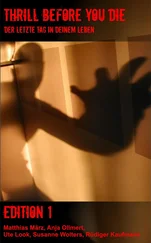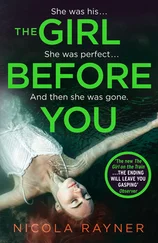“I don’t want a fence,” Spencer had told him.
“Then get a great big thorny thing.”
“A great big thorny thing?” Spencer asked. He expected more precision from the owner of the nursery than “a great big thorny thing.”
“Rows of them. Build walls and walls of big thorny things. Deer hate thorns. Me, too. Don’t carry a whole lot that has thorns-other than roses, of course. No one likes thorns, you know?”
“I do know. Certainly I don’t like them.”
“Evergreens, then? How about evergreens? I got two or three Fat Alberts you could take with you. Three seventy-five apiece,” he said, and Spencer knew enough about trees to know that he meant $375.
“I doubt three would be enough.”
“Oh, you got that right. I just meant to get you started. How big is your garden?”
“Maybe a third of an acre.”
The man whistled, shook his head, and then allowed himself a laugh that sounded a bit like a snort. “You’d need a hell of a lot more than two or three trees. You got to build a fortress with them, you know!”
“It was your idea.”
“I didn’t realize your garden was… was a farm.”
“It’s not a farm.”
“You hunt?”
“No.”
“I was going to say if you started-”
“I don’t hunt. I don’t even eat meat. I work for FERAL.”
He nodded. “Oh, yeah, I’ve heard of FERAL. You’re the folks who hate dairy farmers, right?”
“We don’t hate dairy farmers. Why would you think such a thing?”
“My nephew’s in college, and one year he and his roommate had this poster on their wall. It said something like ‘You don’t have to milk barley and hops.’ It was a picture of a giant hop, and it had all these suction tubes and-”
“I know the poster. The point wasn’t to say that anyone hates dairy farmers-”
“And wasn’t there some farmer in a leather mask? One of those creepy executioner’s S-and-M hoods you see in… well, you know, you see some places?”
“No!”
“Oh.”
“There was one very stylized photograph of some natural barley being treated like a dairy cow,” Spencer told him, struggling to keep his voice even. He remembered well the fallout from the “Milk Is Cruel Food” disaster. It had kicked off late summer, almost two years ago now, and its purpose was to educate college students-huge milk drinkers-about the inhumanity of the corporate dairy industry. The vacuum pumps that were attached to the cows’ udders, the male calves that were sent away to be slaughtered. The shadowy growth hormones that increased production.
“Because you wanted the college kids to drink beer instead of milk, right?” the nursery’s owner asked.
“The point was simply to educate them that cows are mistreated, and when they drink milk-which is actually so bad for you that if I had my way my own daughter wouldn’t drink it-they’re supporting animal torture,” he answered. The result of the campaign had been angry letters from practically every mother and father who had ever lost a son or daughter to a drunk college-aged driver, as well as mountains-no, mountain ranges-of bad publicity for FERAL. Spencer had wound up on Nightline, enduring a withering battery of statistics from a representative from MADD about the numbers of people in this country who were killed or maimed every year by drunk drivers. On one syndicated radio talk show a woman had called him the Antichrist, and (her voice breaking) informed him that her beautiful vegan, non-milk-drinking FERAL member daughter had drowned diving amid the coral reefs of Grand Cayman when the girl’s boyfriend (drunk on beer) had improperly attached her regulator to her oxygen tank.
“Anyway,” Spencer continued now, drawing a long breath, “I’m not about to shoot a deer.”
“Or have much of a garden, I just guess.” The owner was grinning mischievously when he spoke, and Spencer could see that the moment he had told the man he worked for FERAL, the fellow had written him off as a fanatic. This happened all the time, and it drove him crazy. He was an activist, he believed, but he wasn’t an extremist. And if anyone wanted to talk about killing animals, the reality was that for better or worse he had finished off a great many more animals than most people you met on the street. One December evening when he was driving home from college with a friend for the winter break, he had tried to calculate in his mind the number of lobsters he had cleavered the previous summer by multiplying the average figure he killed in a night by the number of nights he had been the second chef at the Steer by the Shore. The bus tours, he understood, were what made him a statistical killing machine, and he guessed there were two of those each week. Those evenings he might have baked and stuffed as many as seventy lobsters. The other nights he presumed he killed about five an hour, and maybe twenty all told.
Still, he was able to come up with a figure that he supposed was a pretty good ballpark: 2,200.
That same car ride he had also calculated the pounds of ground beef he had consumed as a freshman, since he had eaten two cheeseburgers a day for lunch seven days a week and at least another six or seven either at dinner or at the snack bar when he was tired of the library late at night. At the time he didn’t know exactly how much a cow weighed, but he guessed at a quarter pound per burger he’d eaten all the meat off at least one steer that school year.
As he sped from the garden center’s parking lot, it didn’t seem fair that it was actually animals that were keeping him from his vegetables. It was as if the deer had known the exact day he was coming and descended on the garden literally hours before he arrived. He was quite sure that his family-John and Sara and his mother-in-law, perhaps even Catherine-was secretly laughing at him.
He decided the first thing he would do when he got to the club was grab a swim with his daughter. Spend some time with Charlotte and Willow, the two people who would be least likely to see any humor in the way a couple of deer had undone his big plans. He knew he wouldn’t dare say a word to Catherine, because although she had absolutely nothing to do with this debacle, he would be unable to speak of his experience at the nursery just now without sounding as if he were furious with her. Taking his disappointment out on her. Which, obviously, he wasn’t. But, still, Catherine would get defensive. And he would grow sarcastic. And either they would stew separately or they would squabble together. He didn’t want that, not here.
Maybe when he’d calmed down he would see if John wanted to play nine holes of golf.
Then, when he was more serene at the end of the day, perhaps he could get in a game of doubles with Catherine and Sara and John. He’d be so tired by nightfall that he wouldn’t care-or, at least, he wouldn’t care quite so much-that the greens he would eat this coming week wouldn’t come from the seeds he had planted back in May.
As he drove past Gerta’s Edelweiss Garden (the Steer by the Shore was long gone, replaced by a store that sold home medical equipment), he decided that what he actually found most disturbing was the notion that even a guy with tattoos of flowers on his arms thought he was a kook because he didn’t want to bring down a couple of deer-in season or out-with an assault rifle.
Walter Durnip’s funeral was worse than Nan Seton had expected. At least a dozen people with absolutely no background in public speaking had felt compelled to share stories, most of which were so pointless and dull that not even a seasoned orator could have brought them to life. The man’s principal legacies were the meaningless facts that he loathed golf carts but enjoyed his tractor; that he disapproved of modern antilock brakes on automobiles and remained till the day he died a firm proponent of pumping (“No one could drive on snow like Walter,” said Lida Barnum with great solemnity); and that for the last half century of his life he had used the putter that had been given to him by Phillip Cole Jr., the president of the Contour Club from 1947 to 1963 and the son of one of the revered institution’s founders.
Читать дальше











